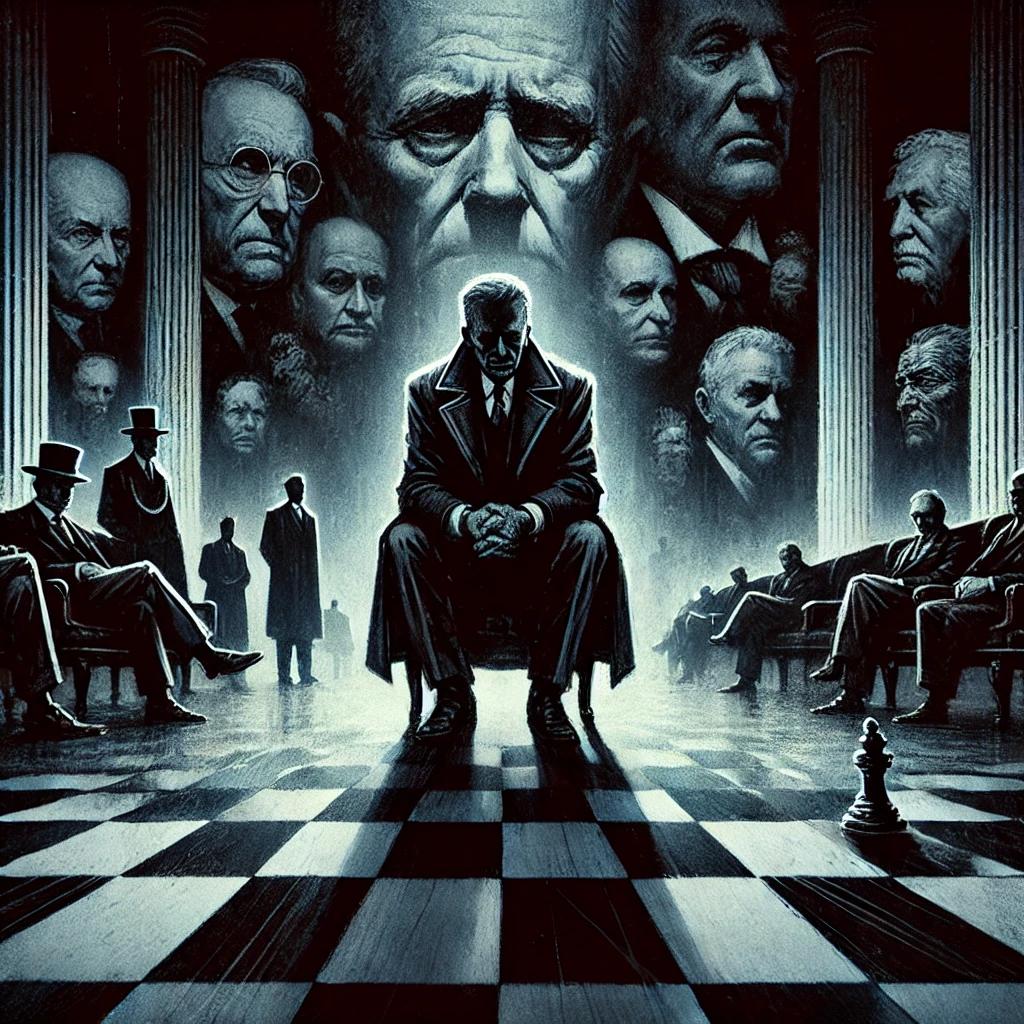Politics does not move in a straight line. It shifts like a constellation, with every decision altering the balance. One wrong step can send a politician spiraling downward, while a single strategic move can elevate them. Super-rich groups pull the strings, influencing who rises and who falls. A politician must navigate this complex web, knowing that every choice reshapes their alliances, enemies, and future. Even a small act—such as signing a law against the interests of a powerful group—can change everything overnight. Politics changes people personally.
Super-rich interests and fragile alliances
Politics is not about ideology. It is about power and those who control it. Super-rich groups shape policies behind the scenes. Their influence decides who stays and who is pushed out. No politician survives without securing the backing of these forces. Yet their support is conditional. It lasts only as long as the politician serves their interests.
A single decision can destroy years of loyalty. If a leader signs legislation that threatens a powerful industry, support evaporates. Media allies turn hostile. Financial backers withdraw. Political careers collapse in an instant. Every move must be calculated. Every decision must factor in potential backlash.
Lying as a tool for survival
Truth is a weakness in politics. Politicians do not simply stretch the truth. They construct entire narratives to manipulate public opinion. Every speech, every promise, every policy statement is designed to maintain power.
Voters want honesty, but honesty does not win elections. A politician must appear trustworthy while constantly shifting positions to stay afloat. They say one thing to the public, another in private meetings. They make promises they cannot keep, knowing that political survival depends on illusion.
Politics changes people personally: Paranoia and isolation
Trust is rare in politics. Every ally is a potential enemy. Every handshake carries the risk of betrayal. Politicians must anticipate backstabbing before it happens. Those who fail to see betrayal coming do not last long.
Over time, paranoia sets in. Politicians become detached from normal relationships. Their interactions are calculated. Friendships are built on utility, not genuine connection. They forget how to deal with people outside the political world. Empathy fades. Authenticity disappears.
Alliances that turn into lifelong rivalries
Political alliances are temporary. They shift with the winds of power. Today’s trusted partner becomes tomorrow’s bitter enemy. Betrayals are not forgotten. Feuds last decades. A politician may leave office, but their grudges remain. They plot comebacks, seeking revenge against those who turned against them.
Once a rivalry forms, it rarely ends. Elections bring new faces, but the battles remain the same. Political careers may be short, but political wars last a lifetime.
Politics changes people personally: Family life in ruins
Politics consumes everything. Family life collapses under the weight of ambition. Power demands full attention. Spouses feel abandoned. Children grow up with distant parents. Marriages end. Personal lives disintegrate.
Czech prime ministers and global leaders alike have watched their families break apart. Politics offers no stability. The same forces that create political triumphs destroy personal happiness. Those who enter politics rarely leave with their families intact.
Power as an addiction
Few politicians leave willingly. Power is a drug. The rush of control is intoxicating. Even when careers seem over, they fight to remain relevant. They take up advisory roles, make public appearances, or seek political comebacks.
Some return to office not for policy, but for revenge. They want to settle old scores, seek to humiliate those who pushed them out. They use their regained power to punish former allies.
Politicians: Avoiding prosecution at all costs
Survival is not just about staying in power. It is about staying out of prison. Many politicians do not leave office because they cannot afford to. Losing power means facing investigation, legal battles, or even jail.
They manipulate laws to protect themselves. They influence judicial systems to escape accountability. Some rewrite constitutions to extend their rule. Others seek asylum in foreign countries. The goal is not governance but self-preservation.
Careers that last only a few years
Most political careers are short. The window of influence is small. Yet politicians stretch their presence as long as possible. Some remain active for decades, jumping between roles, shifting alliances, staying in the game. They fear irrelevance more than anything. The moment they step away, they become ordinary. The power they once commanded disappears.
They cling to whatever influence they have left, take up positions in think tanks, join corporate boards, or become political commentators. They cannot let go. Politics defines them.
Conclusion: The inescapable corruption of political life
Politics transforms people. It forces them into deception, paranoia, and ruthless decision-making. It strips away humanity, leaving behind figures obsessed with power. Many enter politics with idealism, but few leave unscathed.
The constellation of power constantly shifts. Politicians must adapt or disappear. The system does not reward morality. It rewards those who play the game without hesitation. And once they enter, there is no easy way out.
Politics transforms people. It forces them into deception, paranoia, and ruthless decision-making. It strips away humanity, leaving behind figures obsessed with power. Many enter politics with idealism, but few leave unscathed.
Every politician wears out. The public grows tired, opinion polls decline, and support evaporates. Old friendships fade as survival takes priority. Trust becomes impossible. A lifetime of maneuvering leaves them isolated, loners even in crowded rooms. Their families drift away. Their allies turn into ghosts of past political wars.
The paranoia never fades. Even out of office, they watch their backs, fearing the revenge of those they wronged. They cannot return to normal life. They no longer fit into a world of genuine human connections. Their existence revolves around past victories, grudges, and the desperate attempt to remain relevant. The shifting constellations of power leave them behind, abandoned by the system they once mastered.
The tragedy of politics is not just the loss of power but the loss of self. Once inside, there is no easy way out.

Leave a Reply